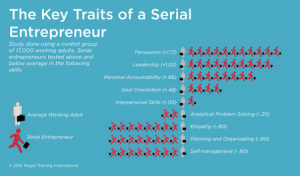Guest Post by: Adam Wong
For those seeking to hire new talent, the internet is full of pages and pages of potential interview questions to ask candidates.
There are the lists of traditional questions:

- What interests you about this company and this job?
- What did you like or dislike about your previous job?
- What was your biggest accomplishment in this position?
- Have you ever had difficulty working with a manager?
- How do you evaluate success?
Then, there are the eccentric questions that promise to explore the candidate’s psyche, catching him or her off guard and away from canned responses:
- What song best describes your work ethic?
- What do you think about when you are alone in your car?
- If we came to your house for dinner, what would you prepare for us?
- How would people communicate in a perfect world?
- If you could be anyone else, who would it be?
And yes, these are actual interview questions Fortune 500 companies asked their candidates over the last year (courtesy of Glassdoor).
Now imagine that prior to recruiting candidates, you were able to reveal the necessary Behaviors (DISC), Motivators and competencies that a job required. You would know that the type of person you’re looking for is, say, comfortable with analysis of data, as the job requires that details, data and facts are analyzed and challenged prior to making decisions, and that important decision-making data is maintained accurately for repeated examination.
You would also identify that a successful candidate for this position would value knowledge for knowledge’s sake, appreciating one’s continued education and intellectual growth. In addition, you would recognize distinct competencies that the job necessitates, such as the ability to write clearly, succinctly and understandably; the ability to identify and prioritize activities that lead to a goal; and the ability to imagine, envision and predict what has not yet been realized.
Knowing all of this information about the job itself, your ideal candidate easily comes into focus, and interview questions that correspond directly with the specific needs of the job will yield more valuable results. Referencing those necessary behaviors, motivators and competencies, your interview questions for this particular job might look like this:
• How do you organize details for use and recall? What system do you use?
• Would you consider yourself to be an expert in something? What is it? How did you go about gaining the knowledge?
• How do you know when something you’ve written has achieved its communication goal?
• Describe the most complex project you ever worked on. How did you establish action steps and milestones for that project? What was the most difficult part of that project for you?
• Give me an example of when you predicted something that would happen in your department, organization or industry. What caused you to make that prediction?
Once you experience a job benchmarking process, it’s easy to see why there’s not one ideal list of interview questions. Each job has its own demands, and if candidates aren’t “one size fits all,” then the interview questions can’t possibly be either.
To learn more about improving your recruiting process by implementing TTI’s patented job benchmarking system, contact your TTI-certified consultant, or call (800) 869-6908.
ABOUT THE AUTHOR
Adam Wong is Director of Network Development for TTI Success Insights, driving excellence through careful thought and attention to detail, consistently anticipating the needs of all customers. He serves as an integral member of the product development team, creating new products and improving existing tools to better support the company. @TTISI_Adam

 But a strong business must start with a strong team. A team inspired by a common goal and a crystal clear purpose.
But a strong business must start with a strong team. A team inspired by a common goal and a crystal clear purpose. Consider the senior leadership of your organization. Has your company made plans for the transition of these individuals? Succession planning is least effective when it is developed on an as-needed basis (in fact, it really should be called “crisis management” in that case); rather, succession planning should be ingrained in your complete talent management plan, making it a part of the way you do business.
Consider the senior leadership of your organization. Has your company made plans for the transition of these individuals? Succession planning is least effective when it is developed on an as-needed basis (in fact, it really should be called “crisis management” in that case); rather, succession planning should be ingrained in your complete talent management plan, making it a part of the way you do business.
Recent Comments